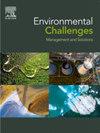亚热带酒店可持续经营:余热回收潜力的时间序列分析
Q2 Environmental Science
引用次数: 0
摘要
来自酒店制冷系统的冷凝废热通常被排放到环境中,导致能源浪费和羽流的产生。然而,这种余热的回收并不常见。因此,本研究提出了一个时间序列分析来评估废热回收对可持续酒店运营的潜力。本案例研究集中在香港亚热带地区的一家原型酒店,其工程系统使用EnergyPlus进行建模。通过结合换热器和蓄热系统,可以回收冷凝器余热,充分满足日常生活用水的供热需求,原来锅炉提供的生活用水占总时间的79.32%。这个应用程序提供了几个好处。首先,它通过最大限度地提高能源效率和减少废热,减少了与水冷式冷水机系统相关的40.23千克二氧化碳当量/平方米的年碳排放量(相当于基线排放量的27.36%)。其次,它降低了冷却塔在高排热量下的运行能力,使羽流排放的机会减少了30.9%。最后,它降低了锅炉的年燃气消耗量153.11 MJ/m2(相当于基线消耗量的79.32%),可以作为可再生太阳能热系统的替代方案。详细讨论了凝汽器余热回收面临的挑战和机遇。值得注意的是,本研究引入了一种使用室外焓来规范冷却需求的新方法,以改善能源管理。总的来说,本研究提供了一个全面的评估,从制冷系统的废热冷凝器促进可持续发展。本文章由计算机程序翻译,如有差异,请以英文原文为准。
Sustainable subtropical hotel operations: A time series analysis of waste heat recovery potential
The waste condenser heat from chiller systems in hotels is typically discharged into the environment, leading to energy waste and plume generation. However, the recovery of this waste heat is not common. Therefore, this study presents a time series analysis to evaluate the potential for waste heat recovery for sustainable hotel operations. The case study focuses on a prototype hotel in subtropical Hong Kong and its engineering systems are modeled using EnergyPlus. By incorporating heat exchangers and thermal storage systems, waste condenser heat can be recovered to fully meet the heating demand for daily service water, which was originally supplied by boilers for 79.32 % of the total time. This application offers several benefits. Firstly, it reduces annual carbon emissions by 40.23 kgCO2e/m2 (equal to 27.36 % of the baseline emissions) associated with water-cooled chiller systems by maximizing energy efficiency and minimizing waste heat. Secondly, it decreases the operating capacity of cooling towers at high heat rejection, which reduces the chance of plume emissions by 30.9 %. Finally, it lowers the annual gas consumption of boilers by 153.11 MJ/m2 (equal to 79.32 % of the baseline consumption) and can serve as an alternative to renewable solar thermal systems. Challenges and opportunities for recovering waste condenser heat are also discussed in detail. Notably, this study introduces a new approach of using outdoor enthalpy to normalize the cooling demand for improved energy management. Overall, this study provides a comprehensive assessment of waste condenser heat from chiller systems to promote sustainable development.
求助全文
通过发布文献求助,成功后即可免费获取论文全文。
去求助
来源期刊

Environmental Challenges
Environmental Science-Environmental Engineering
CiteScore
8.00
自引率
0.00%
发文量
249
审稿时长
8 weeks
 求助内容:
求助内容: 应助结果提醒方式:
应助结果提醒方式:


